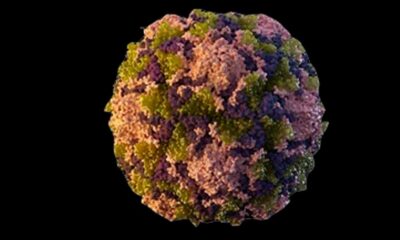Health and Lifestyle
Washington watches and waits for the Omicron COVID variant to arrive
Cassie Sauer, CEO of the Washington State Hospital Association states, “I think that there is almost no chance that it’s not [here.]”
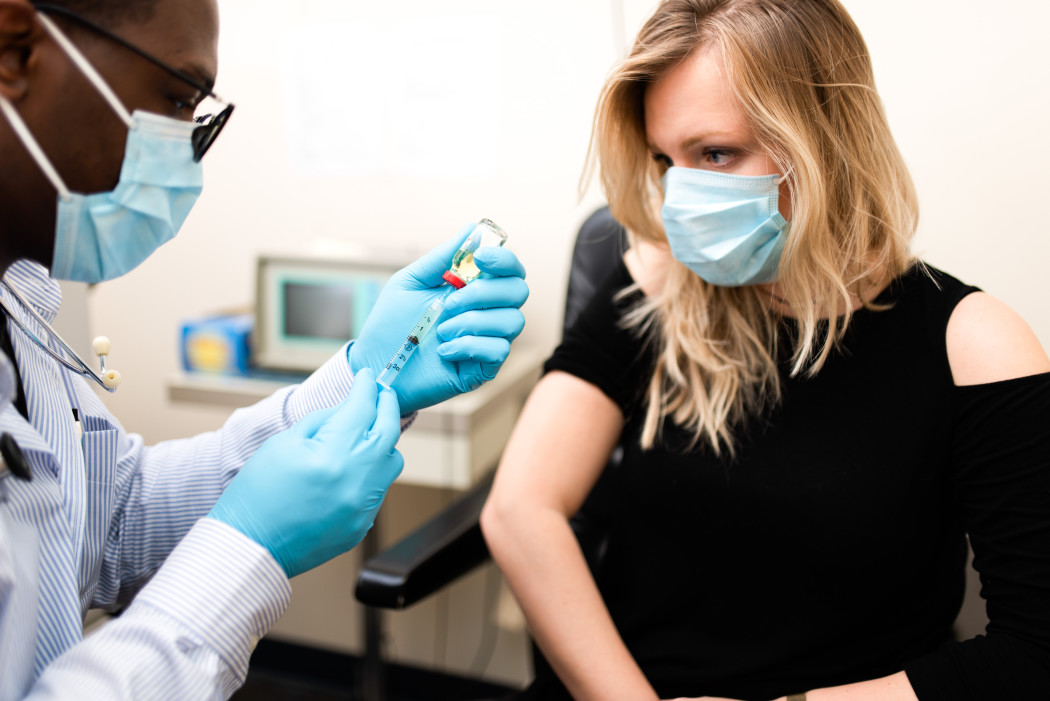
Knowledge is the best tool to fight against fear. A wise person chooses to be informed so they can make sound decisions. To join the fight against COVID misinformation, you can share this update through your social media platform of choice.
[KIRKLAND, Wash.] – (MTN) Health officials and researchers are in a race against time to unlock the secrets of the Omicron COVID variant and its potential impact on public health as more nations report discovered cases.
Washington state is one of the leaders in genomic sequencing of COVID tests samples in the United States, led by the University of Washington Medicine. Standard PCR tests can detect a marker for a potential Omicron variant. Omicron shares a mutation with the Alpha variant that the current PCR tests look for, enabling researchers to see if a specific spike protein has a deletion. That would become a probable case that would be tagged for confirmational sequencing.
President Joe Biden addressed the nation on Monday saying, “there are three messages about the new variant that I want the American people to hear. First, this variant is a cause for concern, not a cause for panic.”
The President went on to praise South African officials and their scientific community for, “the kind of transparency that should be encouraged and applauded.”
Currently, in Washington, 99.6% of new COVID cases are the Delta variant, and 0.4% are Mu. The last cases of the Beta, Epsilon, Eta, and Kappa variants were detected in June and the last cases of Gamma and Iota were in August.
“Omicron has an unprecedented number of spike mutations, some of which are concerning for their potential impact on the trajectory of the pandemic,” the WHO said in a statement today.
“The overall global risk related to the new variant …is assessed as very high.”
On Sunday, Dr. Angelique Coetzee told South Africa Today, “Most of these cases are mild whether they are vaccinated or not. There is no increase in our hospital admissions currently.”
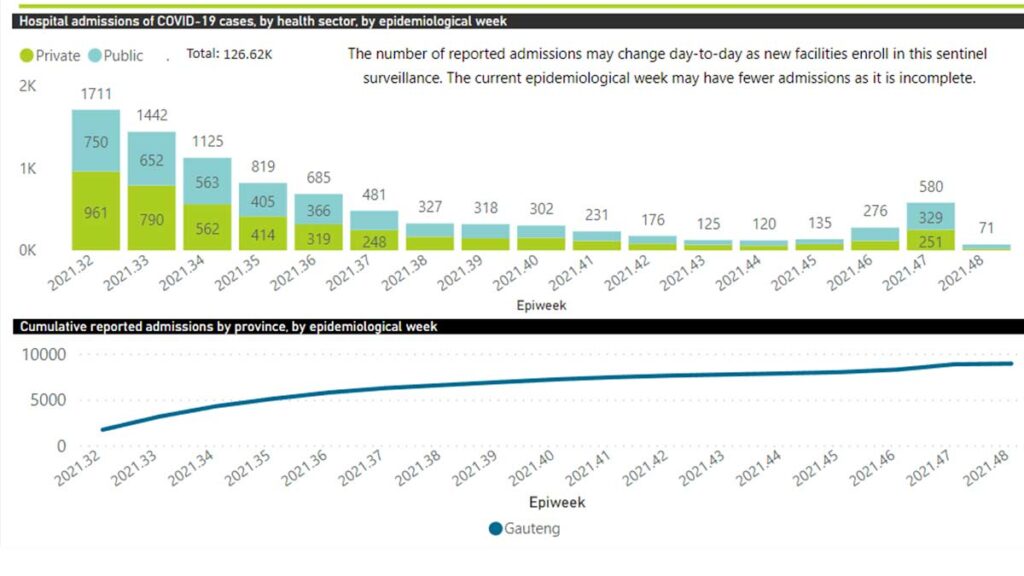
Less than 12 hours later, the hospital admission data from the South Africa Department of Health painted a very different picture. In the previous week, COVID hospitalizations had increased 66% nationwide and 210% in Gauteng Province, the epicenter for Omicron cases. Two weeks ago 135 Covid-19 patients were hospitalized in and around Johannesburg jumping to 580 on Monday morning. Hospitalizations at public and private hospitals increased almost equally and officials at Baragwanath Hospital reported moderate to severe symptoms with almost all patients unvaccinated or partially vaccinated with the Pfizer vaccine.
Dr. Coetzee in her interview on Sunday went on to take a more cautionary position, “Two weeks from now we might say something different, but we urge…people out there please get vaccinated, listen, do the right thing, and stop going to big gatherings.”
She also added the unvaccinated should be worried, saying, “especially if you are above the age of 50, we have seen this many times.”
“There is a saying. You’re not safe until everyone is vaccinated.”
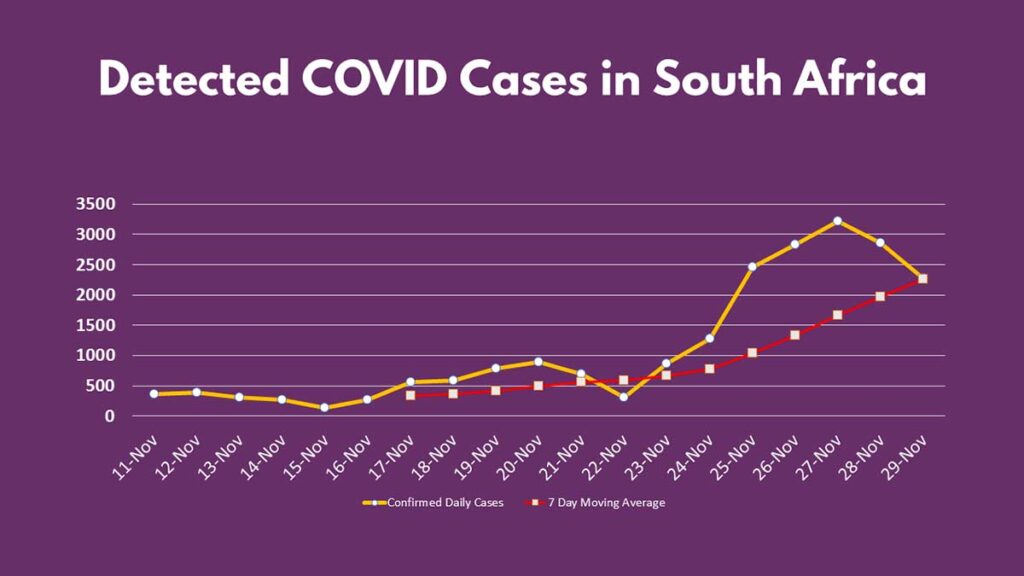
The WHO appeared to address the reports from Dr. Coutzee and her reports on the severity of the new variant in a statement last night. “There is currently no information to suggest that symptoms associated with Omicron are different from those from other variants.”
The statement added, “Initial reported infections were among university students—younger individuals who tend to have more mild disease—but understanding the level of severity of the Omicron variant will take days to several weeks.”
Dr. Coetzee saw her first suspected Omicron variant patient on November 18 and has based her statement of symptoms being mild on two-dozen patients who are mostly university students and younger, and about 50% vaccinated. In an interview with the BBC on Thursday, she stated all were in good health with no comorbidities.
Although she is credited and has self-proclaimed to have “discovered” Omicron, the first detection of the B.1.1.529 variant was collected on November 9 in Botswana and confirmed by South African scientists on November 11. South African officials notified WHO on November 24, a day before Dr. Coutzee stated she contacted South African authorities on her observations.
Despite a lot of unanswered questions, a clearer picture is slowly starting to emerge. The three riddles scientists need to solve are how contagious Omicron is compared to the Delta variant, can it escape public health measures, preventions, and treatments, and if the symptoms are the same, worse, or milder than previous variants.
Here is what is currently known about the Omicron COVID variant.
Symptoms
For children, adolescents, and young adults there is conflicting information. One doctor is reporting mostly mild symptoms that can be treated at home while hospital officials are reporting cases are similar to Delta.
The WHO stated on Sunday, “There is currently no information to suggest that symptoms associated with Omicron are different from those from other variants.”
Transmissiblity
Concern is growing among the CDC, WHO, and a constellation of health officials that Omicron is highly transmissible. At least equal to Delta and possibly higher.
In less than two weeks, Omicron went from almost non-existent to 90% of new cases in South Africa. It appears it can effectively outcompete the Delta variant. However, this introduces bias in the data because the Delta wave had just ended in South Africa. Did Omicron become the dominant strain by outcompeting Delta or due to the absence of Delta? More research needs to be done to answer that question.
There are other variables that could explain the sharp increase in cases that go beyond the simple reproductive number, known as R0. Omicron has so many more mutations than previous strains, it could be benefiting from immune escape. Although the R0 is lower than Delta, its uniqueness compared to previous mutations enables it to reinfect people relying on natural immunity. So overall transmissibility may be lower than Delta, but its ability to escape immunity results in more infections.
Is it in the United States
Cassie Sauer, CEO of the Washington State Hospital Association said on Monday, “I think that there is almost no chance that it’s not [here.]”
The United States does not have a national standard or requirement to genetically sequence some or all COVID tests that come back positive. Those decisions are left up to individual states. It is likely that states with aggressive public health programs such as California, Washington, Colorado, New York, or Massachusetts will identify the first cases.
How long do researchers think Omicron has been circulating
Dr. Trevor Bedford from Fred Hutchinson in Houston, Texas successfully estimated the arrival of the original COVID strain in 2020, using data from the Washington State Department of Health. Using the same methodology, Dr. Bedford’s model indicates that Omicron likely started circulating between September 19 and October 21. There is no evidence to support that the variant originated in South Africa.
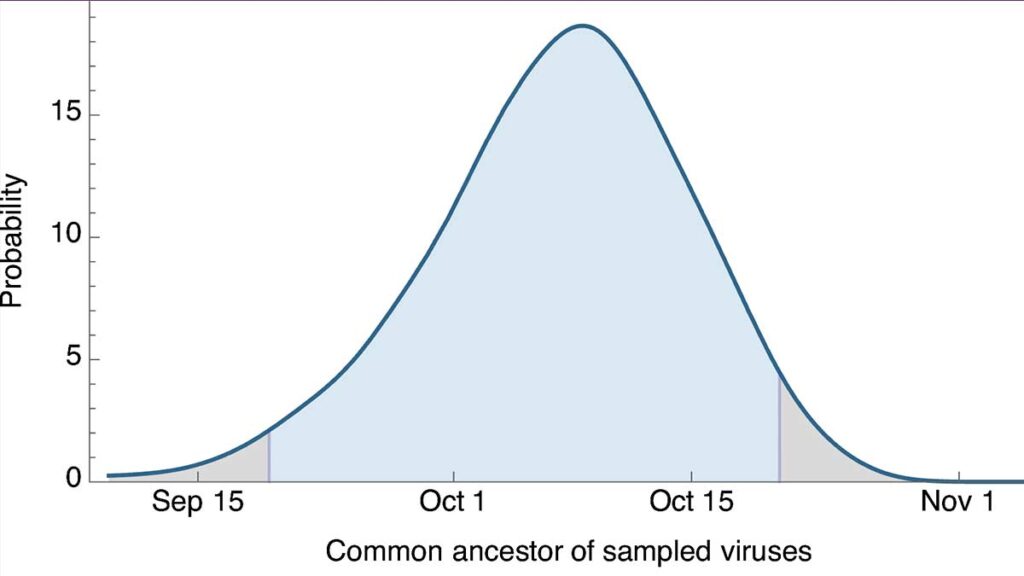
Why are so many travelers testing positive
In total numbers, there aren’t many travelers testing positive. When you consider that in all but two cases the testing of 200 to 250 people on an aircraft has yielded one or two positives, the percentage of breakthrough cases is small. Headlines are blaring two positive cases detected, which is critical to know – they aren’t blaring 248 negative tests on 777 that landed tonight.
Because the people tested are 95% to 100% vaccinated, this creates a false data fallacy. You have an almost exclusive sample of vaccinated people.
In South Africa, the Department of Health has reported almost everyone hospitalized in the last two weeks is unvaccinated or only partially vaccinated. Dr. Coetzee reported 12 of 24 patients she cared for were unvaccinated.
Based on this early data, it appears the current vaccines remain at least moderately effective at preventing infection and remain very effective at stopping moderate to severe COVID.
Are the current vaccines ineffective
There isn’t enough data, and almost every public company making a vaccine announced over the weekend they were testing their current versions against Omicron. Pfizer, Moderna, and Johnson & Johnson announced over the holiday weekend they were testing to see if the current vaccines remained effective.
There is some data out of South Africa that is indicating that vaccines are helping prevent moderate to severe illness and the cases being detected among vaccinated travelers appear to be asymptomatic to mild. However, many of those cases were detected in the last 72 hours and more time is needed to see how these new cases will progress.
In Israel, the first three travel-related cases were fully vaccinated with boosters. One was Pfizer, one was J&J, and one was AstraZeneca. We know that the viral-vector vaccines haven’t performed as well against the Delta variant as the mRNA vaccines.
The evidence suggests that there is more vaccine escape with Omicron, but not outright vaccine ineffectiveness. It still appears to be preventing hospitalizations, which would indicate it would prevent deaths.
Pfizer said they could make a new version if required in 100 days and Moderna said it would take 60 to 90 days. Johnson & Johnson did not provide a timeline but made a statement today they could create an updated version if it was required.
There are some new COVID vaccines in development called subunit vaccinations. There has been no information about the impact Omicron will have on the research.
Is disease acquired immunity still effective
There is growing evidence that immunity gained from a previous COVID infection that isn’t supported by vaccination, is experiencing significant breakthrough numbers.
Researchers are working to determine if the sharp increase in the number of cases and the high positivity rate of tests is due to Omicron being equally or more transmissible than Delta, or if part of the increase is being driven by other factors.
The pattern of mutations found in Omicron is very distant from all previous strains.
Are monoclonal antibodies still effective
There is evidence that Omicron has a significant ability to resist monoclonal antibodies. Specific mutations may have the capability to not only bypass B cells but resist T cells (which isn’t the same as HIV which destroys your T cells).
UW Medicine is evaluating the performance of currently available antiviral treatments and we will know more information in the coming weeks.
Will the new antivirals that are pending approval still be effective
There was a report from Pfizer on Monday morning that Paxlovid is effective against the Omicron variant, which is very good news. This is easy to administer than monoclonal antibodies, easier to distribute, and cheaper.
Nothing has been stated about Monulpiravir from Merck. The FDA will be considering the EUA request this week but there are hints they will label Monulpiravir a Class C drug if the EUA is granted. A Class C drug can’t be used by pregnant women, women actively trying to get pregnant, and nursing mothers because the drug has not been tested to determine if it causes birth defects or pregnancy complications. The FDA has already requested data for Merck to understand the impact better.
What should I do
Health officials recommend you continue to do the same things you are doing now. Get vaccinated if you’re not already. Get a booster shot if you’re eligible, and over 2.4 million Washingtonians are currently eligible. Wear a mask, wash your hands, avoid crowded indoor spaces, and reconsider your short term travel plans if you were planning to fly.









